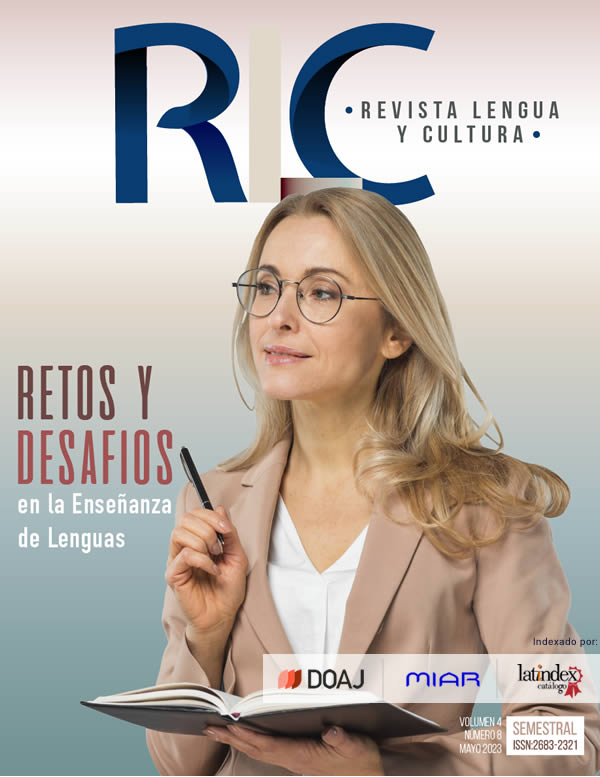The narrative task during speaking practice in the EFL classroom
The challenge of promoting, fluency, accuracy and complexity
Abstract
For more than three decades, tasks have been used to teach and learn the language because they promote cognitive processes required for the development of the L2. However, the performance of tasks has been surrounded by controversy motivated by cognitive and practical limitations which hinder their effectiveness. Following this, the present study was carried out with the objective of exploring the effects of a narrative task on the oral performance of university students with the use of three language dimensions: Complexity, accuracy, and fluency. Also, with the use of interviews, their perceptions concerning the task and their oral performance were examined. The results show that the characteristics of the task encourage students to construct oral structures more complex, but at th expense of fluency and accuracy. Moreover, by exploring the students’ perceptions, the results suggest that the lack of familiarity with the task motivate the students to perceive it as a difficult task, with a high demand of speaking skills and in turn a high complexity to attain the goal of the task. This article provides some pedagogical implications which language teachers might consider when using tasks to practise and evaluate language performance.
Downloads
References
Bygate, M. (1999). Task a context for the framing, reframing and unframing of language. System, 27(1), 33–38. https://doi.org/10.1016/s0346-251x(98)00048-7
Bygate, M., Skehan, P. & Swain, M. (2001). (Eds.). Researching pedagogic tasks: Second language learning, teaching, and testing. London: Longman.
Ellis, R. (2012). Language Teaching Research and Language Pedagogy. Hoboken: Wiley-Blackwell.
Foster, P. & Ohta, A. (2005). Negotiation for meaning and peer assistance in second language classrooms. Applied Linguistics, 26(3), 402–430. DOI: 10.1093/applin/ami014
Foster, P., & Skehan, P. (1996). The influence of planning and task type on second language performance. Studies in Second Language Acquisition, 18, 299–323. doi: https://doi.org/10.1017/S0272263100015047
Foster, P., & Skehan, P. (1999). The influence of source of planning and focus on task-based performance. Language Teaching Research, 3(3), 215-247. doi: https://doi.org/10.1177/136216889900300303
Garcia-Ponce, E. E. (2017). Effects of task characteristics on learners’ fluency, complexity and accuracy during EFL interactions: Implications for speaking practice. The Journal of Language Teaching and Learning, 7(2), 70-89. Retrieved from: http://www.jltl.org/index.php/jltl/article/view/795/150
Garcia-Ponce, E. E., Mora-Pablo, I., Lengeling, M. M., & Crawford, T. (2018). Task design characteristics and EFL learners’ complexity, accuracy and fluency during uncontrolled pair interactions: A naturalistic perspective. Iranian Journal of Language Teaching Research 6(1), 75–92. http://ijltr.urmia.ac.ir/article_20491_cbe42ef4b8aaf979913b108cbb31258a.pdf
Kiernan, P. (2004). Narrative Tasks in Communicative Language Learning. En M. Swanson y K. Hill (Eds.), JALT2003 Conference Proceeding (299-306). Tokyo, Japan: The Japan Association for Language Teaching.
Larsen-Freeman, D. (2009). Adjusting expectations: The study of complexity, accuracy, and fluency in second language acquisition. Applied Linguistics, 30(4), 579-589.
Littlewood, W. (2004). The task-based approach: some questions and suggestions, ELT Journal, 58(4), 319-326.
Richards, J. C. (2015). Key issues in language teaching. Cambridge: Cambridge University Press.
Skehan, P. (1998). A cognitive approach to language learning. Oxford: Oxford University.
Skehan, P. (2001). Tasks and language performance assessment. In M. Bygate, P. Skehan, & M. Swain (Eds.), Researching Pedagogic Tasks: Second Language Learning, Teaching and Testing. Harlow: Pearson Education.
Skehan, P. (2009). Modeling second language performance: Integrating complexity, accuracy, and lexis. Applied Linguistics, 30(4), 510-532. doi:https://doi.org/10.1093/applin/amp047
Wiggleswroth, G., & Stotch, N. (2009). Pair versus individual writing: Effects on fluency, complexity and accuracy. Language Testing, 26(3), 445-466.
Wolfe-Quintero, K., Inagaki, S. &. Kim, H.-Y. (1998). Second language development in writing: Measures of fluency, accuracy, and complexity. USA: University of Hawaii Press.
Zwitserlood, R., van Weerdenburg, M., Verhoeven, L., & Wijnen, F. (2015). Development of morphosyntactic accuracy and grammatical complexity in Dutch school-age children with SLI. Journal of Speech, Language, and Hearing Research, 58, 891–905. doi:10.1044/2015_JSLHR-L-14-0015
Copyright (c) 2023 Edgar Emmanuell Garcia-Ponce

This work is licensed under a Creative Commons Attribution-NonCommercial-NoDerivatives 4.0 International License.













